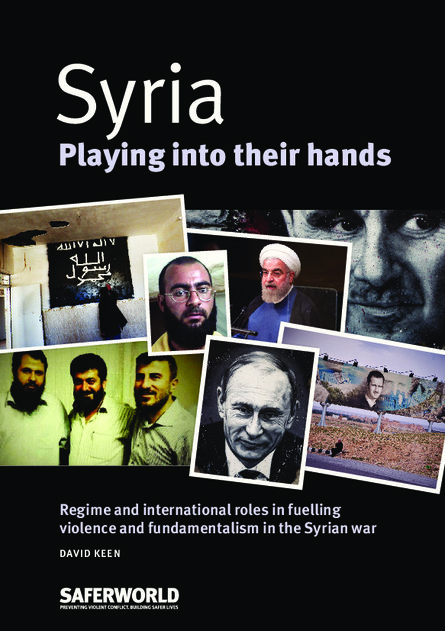
Military engagement, diplomacy, aid policy, and sanctions – all increasingly shaped by the ongoing ‘war on terror’ – have interacted damagingly with Syria’s civil war – a war in which manipulating disorder and colluding with ‘enemies’ has taken precedence over winning.
Although the conflict continues to evolve, the conditions that fuelled militant fundamentalism in Syria – and the regime that nurtured it – endure. To address the challenges ahead, it is vital to understand how we got to this point.
Syria: playing into their hands describes how:
- the regime nourished not only rebellion but also fundamentalism;
- fundamentalist groups came to the fore by offering ‘protection’ from scarcity and state collapse;
- scarcity – compounded by lack of aid, failure to get aid through, and sweeping sanctions – strengthened the regime’s hand and fed support for violent groups; and
- prioritising ‘war on terror’ has negatively impacted the conflict system in multiple ways.
- The report challenges international actors to rethink their assumptions and their future engagement, and recommends:
- moving from a ‘war on terror’ framework to a more comprehensive strategy;
- revisiting the role of aid and sanctions
- redoubling the search for a political solution, and;
- supporting the emergence of new governance arrangements to address conflict drivers and enable reconciliation.
